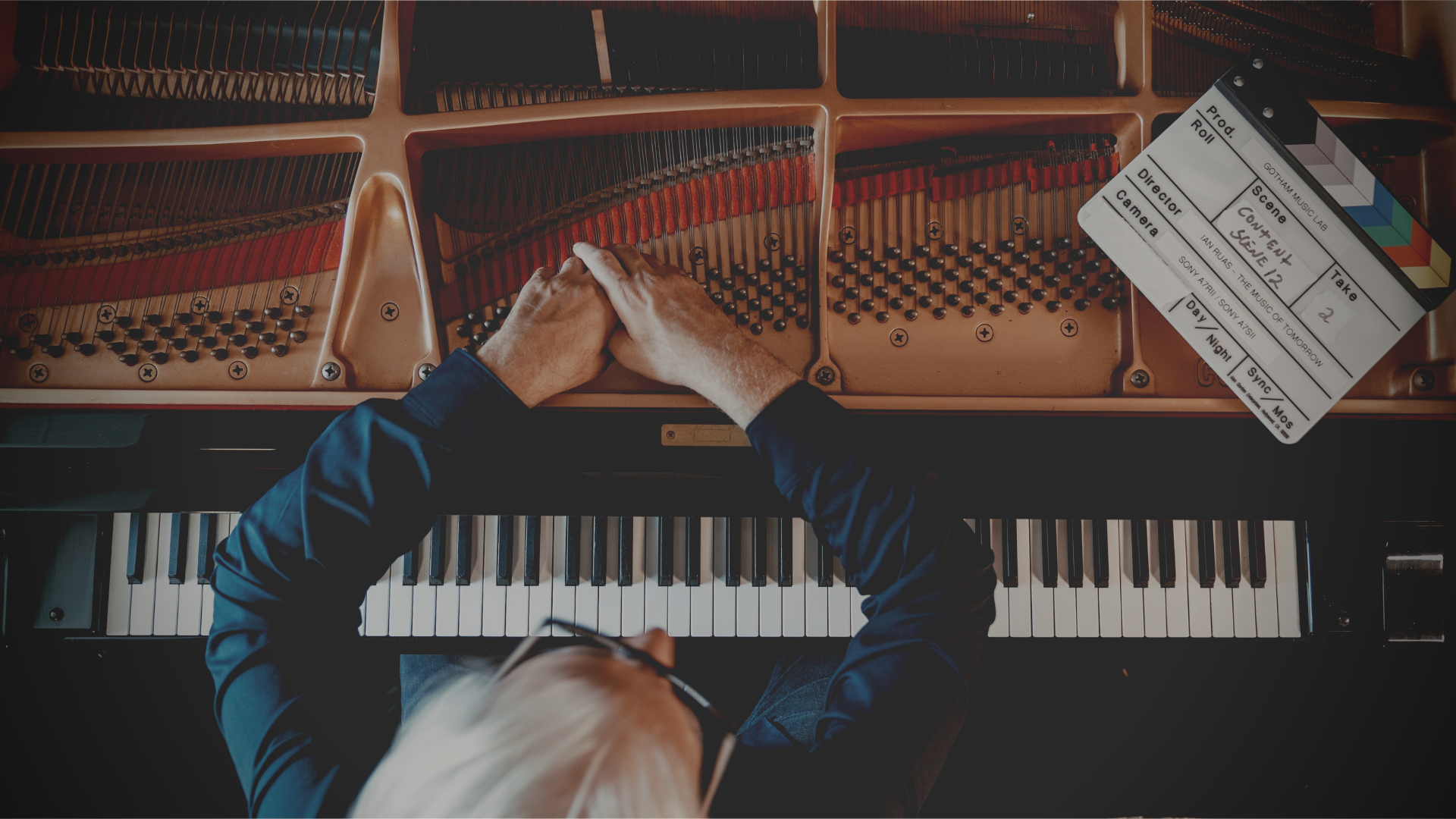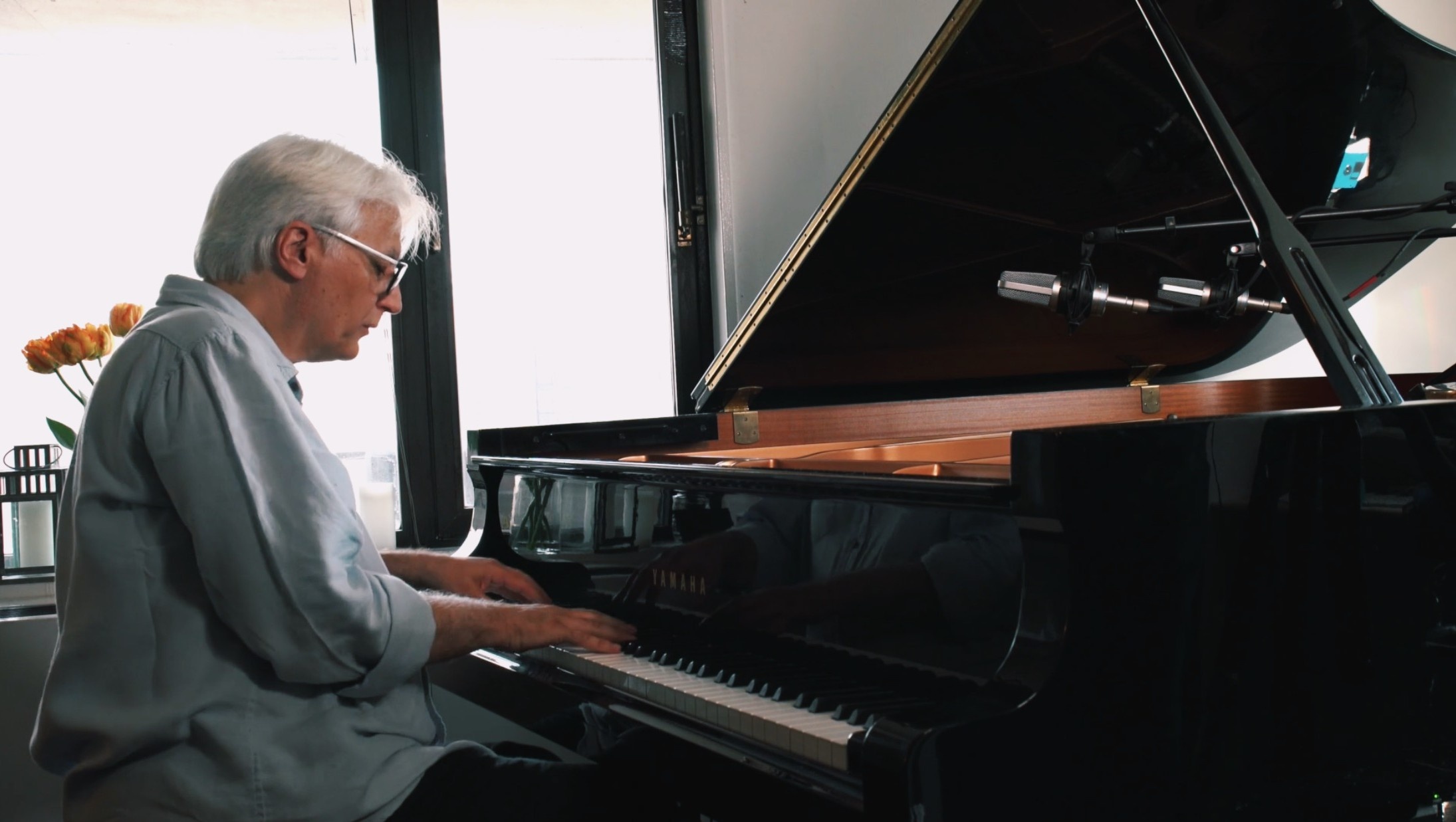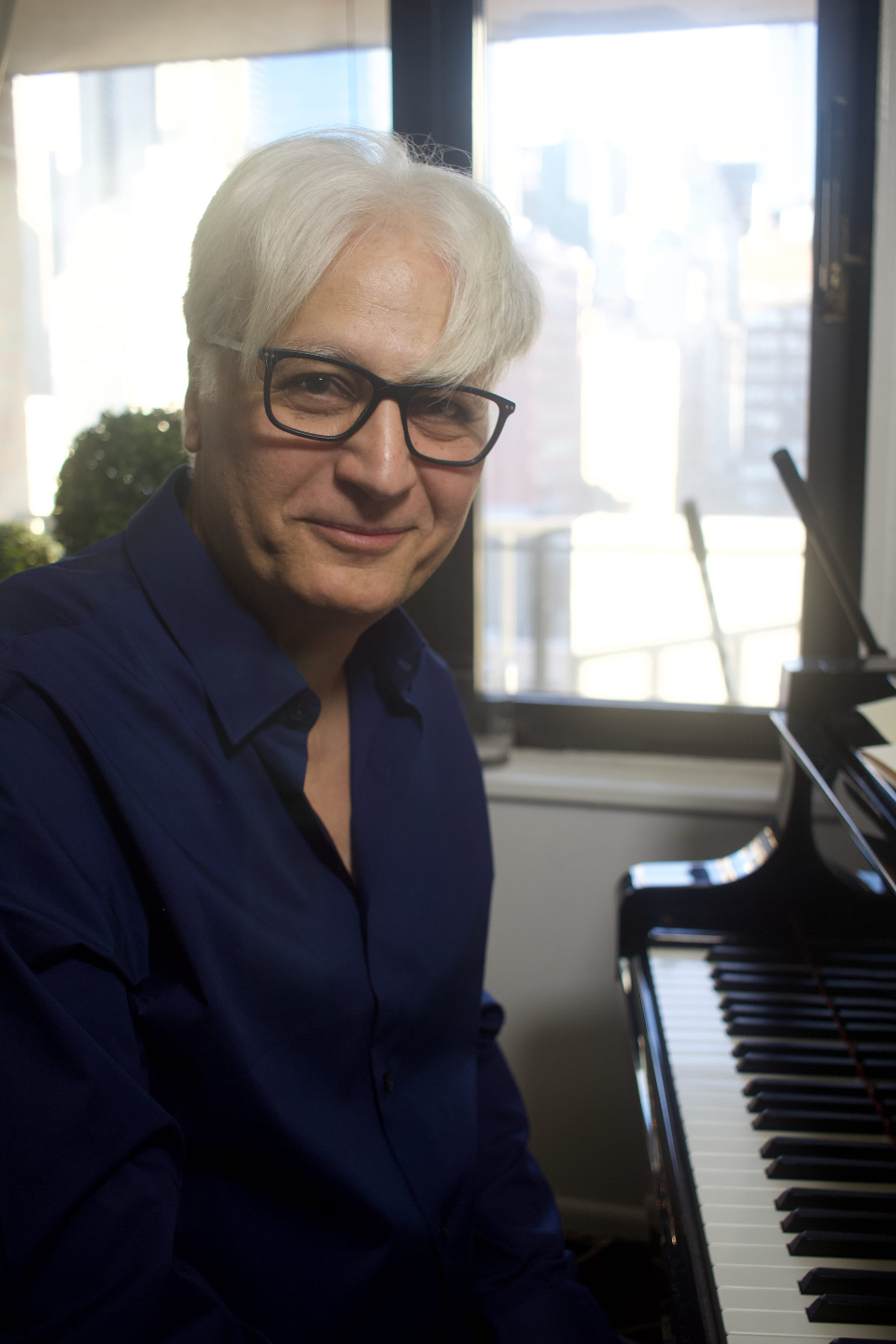About Gotham Music Lab

Overview
Gotham Music Lab (GML) is a global hub for comprehensive music instruction. Founded by jazz pianist and composer Gerard D’Angelo after 40 years of international performances and esteemed educational roles in New York, GML is committed to bridging the gap between world-class music education and accessibility, catering to eager learners across the globe.
"My hope is that I can pass my knowledge on to any student willing to ‘work hard’ and ‘play hard’. " Gerard D'Angelo
What We Offer
At Gotham Music Lab, our ambition is to democratize high-quality music education. We boast a course curriculum that caters to a wide range of musical topics. Our courses cover Jazz Theory, Comping, Improvisation, Hip Tips, Immersion Course and Keyboard Skills.
The Keyboard Skills course is tailored for beginning musicians to make sure they get the most out of the more advanced courses. It also serves as a great course for those reconnecting with their musical passions.
Whether you’re an aspiring musician or a seasoned professional GML offers a premium learning experience that rivals traditional institutions - all at a fraction of the cost.
Who We Serve
- Professional musicians who want to deepen their understanding of music theory and ‘fill in the holes’.
- High schoolers prepping for music college.
- Global learners, especially from regions with limited access to quality music education.
- Part-time musicians renewing their interest in playing.
- Serious beginners
- College Preparatory, Beginners, Alternate Path (other than college)
- Students who decide not to go to music college for whatever reasons but want to develop their craft
- People in other countries who can’t afford an education but desire the knowledge (China, South America, Japan, South Korea, etc.)
Why Choose Gotham Music Lab?
At Gotham Music Lab, you receive top-tier music education comparable to the best institutions in NYC, but without the hefty price tag. Our platform is designed by experts and tailored to serve a diverse range of learners, from beginners to professionals.
Join us at GML, where music meets passion, quality, and affordability.

Your Instructor: Gerard D'Angelo
Born in 1954 in Elmont, Long Island, Gerard D'Angelo grew up in a home where you heard piano every day. His father played stride piano well and completely by ear. Gerard took his earliest piano lessons when he was 8 years old, but he didn’t catch fire until he was 12; then, suddenly, his father’s Errol Garner and Ramsey Lewis records got him hooked on jazz. Like his father, he learned mostly on his own and was soon playing high school gigs.
At 14, he started taking his piano lessons much more seriously, and at 17, he spent a transformative summer at Berklee School of Music studying with Charlie Banacos, the well-respected jazz guru of Boston. This is also when Gerard met his lifelong buddy, Garry Dial. Another year to finish high school on Long Island, and it was back to Berklee. Already good enough to land a five night a week gig, he spent the next year at Berklee immersed in jazz.
Gerard returned to his family home in North Woodmere, Long Island, to do his Associate’s Degree in Music at the newly established Five Towns College. During his first year as a student, the dean offered him a full-time position teaching functional piano, theory, and ensembles along with his studies. This was the beginning of Gerard’s lifelong passion for teaching. Still, weekends and evenings were filled with local jazz gigs with The Long Island Jazz Quintet featuring Gary Smulyan and Glen Drewes. He remembers that period as being saturated in jazz, in that he was either playing or listening all the time. He was grateful that his parents supported and encouraged the talent they saw in him. Gerard also had a unique gig with the great comedian Billy Crystal, improvising music behind Billy’s skits. They performed at numerous venues, especially college campuses.
The next three years were spent mostly on road touring with Broadway shows or doing club and hotel gigs in the continental U.S. and Bermuda. In between tours, he continued to pursue his musical studies, most notably with the great piano innovator and bebop giant Lenny Tristano. Lenny, the tragically underrecognized genius, was a great and creative teacher who never taught strict formulas or systems. Not only did he polish Gerard’s bebop craftsmanship, but his original ear training approach inspired Gerard to improvise intuitively and organically. Now, between Charlie Banacos’ solid jazz theory concepts and Lenny’s organic, intuitive approach, Gerard was beginning to feel a deeper sense of confidence in his jazz playing.
By age 22, Gerard was ready to pursue music full-time and decided to reside in Manhattan. He was busy as a full-time musician for the next decade and a half, working at the great jazz venues like The Blue Note, Birdland, Zinc Bar, and dance clubs like Roseland and the Rainbow Room. He hit the major European Jazz festivals such as Rome, Torino, and the North Sea. And he played with first-rate players such as Zoot Sims, Red Rodney, Vincent Herring, Nat Adderly, Mel Lewis, Bucky Pizzarelli, John Pizzarelli, Ira Sullivan, Garry Smulyan, Dick Oatts.
In the early 80s, Gerard’s interest in technical mastery of the keyboard deepened: he started studying classical piano with one of New York’s major teachers, Sophia Rossoff. That was the beginning of the influence of Ravel and Chopin in Gerard’s playing.
Consequently, Gerard turned to composing. Ever since his Berklee days, he’d been noodling around with tunes of his own, never seriously. Then, on a Florida bandstand with Nat Adderly, he ran down his first sketch of ‘Who’s Kidding Who?’ Nat was knocked out and told him to write a release, and they then recorded the tune in a Florida studio. Nat called it the ‘new, hip, Someday My Prince Will Come.’ That was the first time Gerard took himself seriously as a composer and arranger. Now Vincent Herring, with Wallace Roney and Mulgrew Miller, and Larry Willis, Ted Shumate, Mark Vinci, Sue Maskaleris, Red Rodney all have played and recorded his tunes.
In 1990, prior to beginning his teaching career, Gerard did a European tour with Red Rodney’s band featuring Chris Potter. It was Chris’s first gig in New York, and it was a wonderful experience to play with him and to get to know him as a friend. Through the 90s and the 2000s, Gerard continued to perform a wide variety of gigs along with his teaching.
In 1992, Garry Dial recommended Gerard for a teaching position at The New School – Jazz Program. Shortly thereafter, Gerard began his teaching career subbing, and his teaching assignments grew quickly. Gerard’s two main subjects were Jazz Theory and Theory and Performance, which focused on jazz improvisation. And by 2000, also due to Garry’s recommendation, Gerard was teaching undergraduate and graduate courses at the Manhattan School of Music and stayed there for 15 years. He is still teaching jazz at The New School (now called COPA – College of Performing Arts).
Through the 90s and the 2000s, while teaching, Gerard also had a flourishing performance career. He gigged with Victor Jones, Alex Blake, Steve LaSpina, Hilary Kole at many NYC Jazz clubs. He was also part of a cooperative trio, Primary Colours, with Frank Wagner and Dave Meade. They recorded several CDs and performed throughout the NY Metro Area in clubs and theaters. The trio had a special chemistry, perhaps because they played together six nights a week for four years at the Rainbow Room. Another project was a cooperative with Victor Jones. The highlight of this endeavor was an experimental performance at Birdland where Gerard arranged a variety of classical pieces for jazz interpretation. This venture featured Anat Cohen, Pietro Martinez, Jay Anderson, and the Sweet Plantain String Quartet.
Gerard was playing at a friends’ wedding in a townhouse in Harlem. The Tony-award-winning Brian Stokes Mitchel was a guest as well. Evidently, Stokes was impressed because a few years later, when Stokes left Broadway, he called Gerard to help him launch his solo career. Their first performance was at Lincoln Center and that was the beginning of an almost decade long musical relationship. Gerard was Stokes’ musical director and pianist. They played: San Diego Symphony Orchestra, National Symphony Orchestra under Marvin Hamlisch, and the Boston Pops under the direction of Keith Lockhart. During those years, their gigs ranged from duo to symphony orchestra throughout the United States.
After Gerard’s stint with Stokes, Broadway beckoned again. In 2017, Gerard coached Ben Stiller to play the piano for his starring role in the ‘House of Blue Leaves’. Ben had never played the piano before, but under Gerard’s tutelage, he became a very convincing player.
Since the early 2000s, Gerard has also been involved in music production (DAW). Growing up, Gerard was taught that to make a living in the music industry, one had to know how to perform, teach, compose, and produce. His knowledge of harmony, musical form, and style has made him an important contributor to his longtime friend Gary Haase, who has a production company that handles many well-known artists in a variety of genres, from Michael Bolton to Randy Brecker. Gerard has co-produced and performed on many of these productions.
Most recently, Gotham Music Lab (GML) has become a focal point in Gerard’s career. GML is an extension of Gerard’s experience, interests, abilities, and vision. It is an online platform that offers cost-effective, cutting-edge music education at a variety of levels, from amateur through professional, emphasizing a clear, simple approach to performance, harmony, and theory.
Some have risen to great success, especially in jazz. Gerard's students include:
Robert Glasper, Manuel Valera, Emmet Cohen, Anat Cohen, James Francies, Eden Ladin, Joe Harley, Cassandra O’Neal, Sara Caswell, Becca Stevens, Marcus Strickland, E.J. Strickland, Axel Tosca, Alex Skolnick, Gilad Hekselman, Glenn Zaleski, Ambrose Akinmusire, Obed Calvaire, Fabian Almazan, Kim Thompson, and (the actor) Ben Stiller and many more.
Since having worked with thousands of students through the years from all backgrounds and levels of proficiency, Gerard is hoping that he can continue this legacy through GML to bring great content to all levels of serious students regardless of their means. These comprehensive courses will bring high-quality, affordable music education to all.
If you want to hear more about Gerard D'Angelo, check out his Youtube channel.
Continue Your Education
Explore our courses: the comprehensive Jazz Theory Series, interactive GothamLIVE sessions, and soon-to-launch Improv Series 1 & 2. Also, keep an eye out for Hip Tips.
Start Learning
